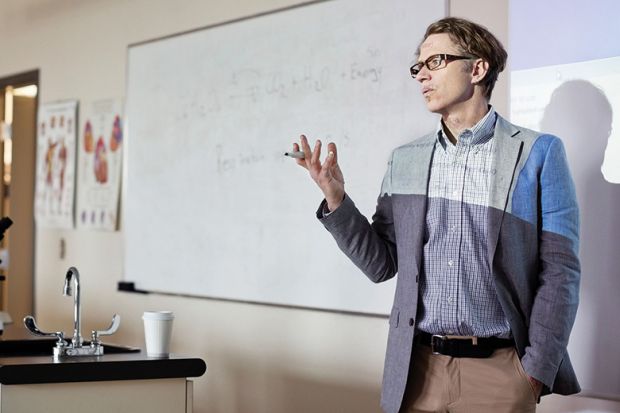We were delighted that Times Higher Education reported on the anthropological research being conducted at Carnegie Mellon on the roadblocks to implementation of demonstratively effective pedagogical innovations. We’d like to take the opportunity to expand the conversation.
Our research exposes multiple factors behind faculty resistance to making changes to their teaching practice, including the institutional barriers encountered by faculty adopting evidence- or research-based practices and especially where technology is involved. There are, of course, many effective teaching practices in use, and current research helps to explain why they work when they do. But that research also points to many other tools and practices that increase teaching effectiveness.
Our aim is to develop a detailed and actionable understanding of what impedes and what helps faculty adopting research-based practices.
The idea that faculty are invested strongly in avoiding embarrassment, and are thus sometimes reluctant to adopt innovative tools or practices – as reported in the THE article – is true. But the story is richer.
Faculty do not want to waste students’ time; they want to teach well. Using methods that they have honed is therefore important. Faculty learn to teach over years of practice, as most of us have little or no training in teaching. Tried and true methods are appealing because faculty have reason to think that they work.
If students have seemed to enjoy the material and report learning from the course, why change? Methods that leave students feeling good about the course (and the professor) are appealing, both because they are validating (“yes, I AM a good professor!”) and because happy students provide good evaluations of teaching, which are vital for faculty job security.
Until we change the incentives and provide alternative sources of personal identity affirmation, faculty will not be motivated to invest time and energy in changing their teaching to adopt practices shown by research to be more effective.
Our research on implementation of research-based instruction shows that faculty care about their students, and want to ensure that students have a good experience. Yes, some faculty at Carnegie Mellon hesitate to use unfamiliar methods or technology because they don’t want to embarrass themselves in class. Few of us want that. But they also don’t want to waste students’ time if something goes awry, want the validation of satisfied students, take student satisfaction as a sign that things are going well, fear the professional consequences of poor teaching evaluations, don’t think alternatives are a good fit, are sceptical of literature that supports alternatives, and believe that institutional support for alternatives is lacking.
Innovation for the sake of innovation doesn’t serve faculty or students. But the use of research-based, effective teaching methods does serve students, and it is in our interest to learn how to support faculty in adopting and sustaining the use of such methods.
To do this, we need to step back, look at the big picture, and address the multiple contributing factors to success and failure in implementing evidence-based practice. Our research shows that systematically incorporating anthropological analysis is an important and rarely used tool for understanding roadblocks to, and enablers of, meaningful innovation in higher education. Without it, we are flying blind.
The research results that we had time to report in our brief presentation at the Global Learning Council meeting (and reported in THE) are only a small part of what we have learned about implementation of instructional innovation, and more results, as well as details on the research methodologies used, are forthcoming.
Lauren Herckis is Simon Initiative research scientist and adjunct instructor, Richard Scheines is dean of Dietrich College of Humanities and Social Sciences, and Joel Smith is distinguished career teaching professor, all at Carnegie Mellon University.
POSTSCRIPT:
Print headline: Faculty will innovate if given solid evidence for novel practices
Register to continue
Why register?
- Registration is free and only takes a moment
- Once registered, you can read 3 articles a month
- Sign up for our newsletter
Subscribe
Or subscribe for unlimited access to:
- Unlimited access to news, views, insights & reviews
- Digital editions
- Digital access to THE’s university and college rankings analysis
Already registered or a current subscriber?







